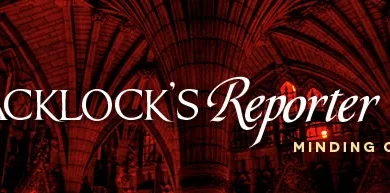Taylor Sheridan’s Paramount Departure Reveals the Real Cost of His Hit Series

This article covers a developing story. Continue to check back with us as we will be adding more information as it becomes available.
As Taylor Sheridan prepares to move his creative empire from Paramount to NBCUniversal, we’ve just learned how expensive his hit shows have been — and why the studio may have finally decided it was time to let him go. According to a new analysis from Luminate Film & TV and Streaming Viewership (M), Sheridan’s projects have delivered undeniable success for Paramount+, but at a staggering cost. The report, which examined per-episode budgets and average U.S. viewership across Paramount+ exclusives, paints a clearer picture of how the Yellowstone creator’s prolific output stacks up against the rest of the streamer’s catalog.
Among Sheridan’s contemporary dramas, Tulsa King emerged as a model of cost efficiency — averaging just $0.48 per view, the lowest of any Paramount+ exclusive from 2023 to 2025. By contrast, Landman costs roughly $15 million per episode, but its massive audience and breakout success have justified the expense. High risk, high reward clearly, but not every Sheri-show is the shame.
His epic Yellowstone prequel 1923 carries an enormous $22 million-per-episode price tag — higher than many HBO tentpoles, most likely down to its location shooting and the cost of hiring Harrison Ford and Helen Mirren — and translates to about $1.33 per view, making it one of the costliest series in Paramount’s library. Still, Sheridan’s storytelling has driven enormous subscriber engagement. Even pricey productions like 1923 are viewed internally as essential brand builders, reminding audiences that the Yellowstone universe — at least for now — still calls Paramount+ home, even as the flagship series streams on Peacock.
The data also exposes how much more efficiently Sheridan’s shows perform compared to Paramount’s other prestige franchises. The Star Trek lineup, long considered a cornerstone of Paramount’s streaming identity, is one of the studio’s most expensive investments — but not necessarily its most rewarding.
According to the report, Star Trek: Discovery clocks in at a staggering $6.02 per view, placing it at the very bottom of the list alongside Halo, another big-budget sci-fi gamble that ultimately fizzled out. Sheridan’s so-called “expensive” titles look like bargains next to those numbers. In short, Sheridan’s shows may cost a lot — but they perform.
Why Did Taylor Sheridan Leave Paramount?
Well, that’s the key question isn’t it? It seems to have been something resembling a mutual parting. Sheridan was unhappy with Paramount challenging the cost of his shows, despite their success, and then began pitching shows of their own for him to write — including a project tied to America’s upcoming 250th anniversary, which Sheridan rejected for being “too political.” While Sheridan’s work often appeals to middle-American audiences and wrestles with themes of power and masculinity, insiders say he was not interested in turning his shows into overt political statements, and the pitch was one of the final straws in the end of his relationship with the studio.
The breaking point, according to sources close to Sheridan, came when Paramount’s new leadership began tightening the purse strings on his Paramount+ thriller Lioness, starring Zoe Saldaña and Nicole Kidman. The high-budget spy series drew internal pushback over its escalating costs, signaling a shift in how the studio viewed Sheridan’s productions. Tensions reportedly deepened when Paramount cast Kidman in another show, Discretion, without informing Sheridan — a scheduling conflict that risked disrupting Lioness. The final straw came when the studio’s film division rejected one of Sheridan’s own movie scripts, despite his proven track record with critically acclaimed hits like Sicario and Hell or High Water and it was at this point that the King of Paramount decided to vacate the throne.
special-ops-lioness-poster.jpeg
Release Date
July 23, 2023
Directors
Anthony Byrne, Paul Cameron





